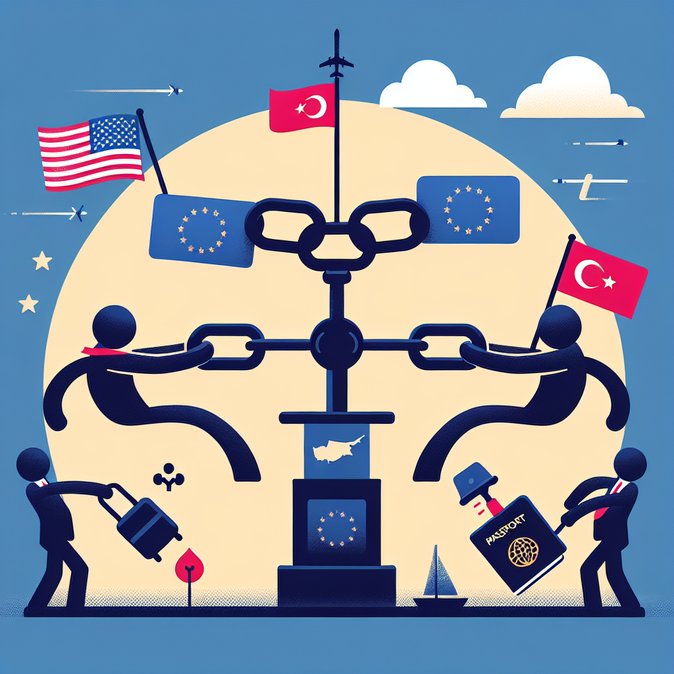
Speaking in Berlin on 15 November, Cypriot President Nikos Christodoulides told German Chancellor Friedrich Merz that Ankara’s insistence on a two-state solution for Cyprus is incompatible with Turkey’s stalled EU-accession—and with the visa facilitation that Turkish business leaders have long sought.
The remarks come as Brussels begins technical talks on revamping the EU’s visa-suspension mechanism. Diplomats say a hardening of Cyprus’ stance could make it more difficult for Turkey to secure the long-promised upgrade from Schengen ‘pink-sticker’ visas to a streamlined business-travel regime. Any freeze would hit Turkish companies that rely on project staff shuttling between Istanbul, Limassol and Athens, and could further complicate supply-chain mobility in the eastern Mediterranean.
![Christodoulides Warns Turkey: Drop Two-State Demand or Forget EU Visa Privileges]()
Christodoulides’ intervention also has domestic ramifications: the government is under pressure to show progress on Schengen accession by the end of 2025. Officials argue that forcing Ankara to soften its position would remove one of the last political obstacles to Cyprus joining the passport-free zone, a move that would eliminate ID checks on flights to 29 European countries and simplify compliance for multinationals headquartered on the island.
For corporate mobility managers, the immediate impact is uncertainty. Firms moving Turkish or Cypriot nationals across EU borders should budget extra lead-time for visa processing in 2026 and monitor whether the European Parliament inserts political-conditionality clauses into the revised suspension regulation.
The remarks come as Brussels begins technical talks on revamping the EU’s visa-suspension mechanism. Diplomats say a hardening of Cyprus’ stance could make it more difficult for Turkey to secure the long-promised upgrade from Schengen ‘pink-sticker’ visas to a streamlined business-travel regime. Any freeze would hit Turkish companies that rely on project staff shuttling between Istanbul, Limassol and Athens, and could further complicate supply-chain mobility in the eastern Mediterranean.

Christodoulides’ intervention also has domestic ramifications: the government is under pressure to show progress on Schengen accession by the end of 2025. Officials argue that forcing Ankara to soften its position would remove one of the last political obstacles to Cyprus joining the passport-free zone, a move that would eliminate ID checks on flights to 29 European countries and simplify compliance for multinationals headquartered on the island.
For corporate mobility managers, the immediate impact is uncertainty. Firms moving Turkish or Cypriot nationals across EU borders should budget extra lead-time for visa processing in 2026 and monitor whether the European Parliament inserts political-conditionality clauses into the revised suspension regulation.


